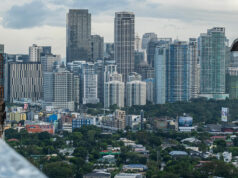Philippines’ talent edge slips in index
By Christine J. S. Castañeda
Senior Researcher
THE PHILIPPINES led lower-middle-income economies in a 2019 talent competitiveness survey, in which the country nevertheless posted a lower score and rank compared to the previous year.
The 2019 edition of the Global Talent Competitiveness Index (GTCI) showed the Philippines with a score of 40.94 out of 100, lower than 44.17 in the 2018 edition. The score puts the Philippines at 58th place among 125 economies in terms of talent competitiveness. This compares with its previous rank of 54th out of 119 economies.
The Philippines was ninth among 15 economies in the “Eastern, Southeastern Asia and Oceania” group and fourth among nine Southeast Asian economies.
Nevertheless, the emerging economy leads the group of 27 lower-middle-income economies and is only among the two that is in the third quartile (those ranked 32nd-63rd), the other being Ukraine (63rd).
“The leading position of the Philippines among lower-middle-income countries reflects improvements in literacy and overall educational standards that are catching with global standards… in view of productivity gains brought about by technological advancements,” said Michael L. Ricafort, economist at the Rizal Commercial Banking Corp. (RCBC).
Mr. Ricafort added that the ranking reflects the Philippines’ leading position as the second biggest process outsourcing destination in the world after India as well as the top site for call center operations that cater to the biggest global companies, especially those in the US.
The report defined talent competitiveness in terms of the “set of policies and practices that enable a country to develop, attract, and empower the human capital that contributes to productivity and prosperity.”
The annual index — published by Adecco Group, INSEAD business school and Tata Communications — measures economies’ ability to enable (e.g., regulatory and business landscapes), attract (i.e., how open an economy is to “outside” talent and the “underprivileged”), grow (how well an economy develops its people, e.g. education) and retain (sustainability e.g., quality of life) skilled workers. These four pillars make up the index’s “input” variables.
The index also takes into account two “output” variables — the economy’s availability of workers with mid-level “Vocational and Technical Skills” and high-level “Global Knowledge Skills” such as those in managerial and professional positions.
“The Philippines has a good pool of Global Knowledge Skills (34th), scoring quite well in both High-Level Skills (37th) and Talent Impact (30th). It is also relatively adept in growing talent (41st), where its strengths in Lifelong Learning (27th) and Access to Growth Opportunities (42nd) offset a sub-standard Formal Education (85th),” said the report, which nevertheless noted that “[m]ore discouragingly, the country’s weak Sustainability (88th) and Lifestyle (91st) subpillars result in a low ability to Retain (92nd) talent.”
Meanwhile, the Philippines placed in the middle for the other categories such as those in the enable (64th), attract (62nd), and vocational and technical skills (73rd) pillars.
“The slight decline of the Philippines’ ranking in the GTCI Index may partly have to do with some local talent being exported to more developed countries due to higher pay and better employment opportunities,” RCBC’s Mr. Ricafort said.
“Some highly-skilled workforce are being attracted as immigrants in some developed countries, some of which have aging populations and facing some shortage of workers. This reflects the fact that the Philippines is the third biggest country in terms of inward remittances from overseas workers after India and China,” Mr. Ricafort said, noting that the Philippines already overtook Mexico and Nigeria in remittances.
Switzerland occupied the top spot in the 2019 ranking, followed by Singapore, the US, Norway and Denmark rounding the top five.
Finland, Sweden, the Netherlands, United Kingdom and Luxembourg took the sixth to 10th spots, respectively.
Meanwhile, the Global Cities Talent Competitiveness Index had Manila at 98th place out of 114 cities with a score of 26.4.
Compared to other Southeast Asian cities, it fell behind Singapore (17th), Bangkok (65th) and Kuala Lumpur (76th).
On the other hand, the Philippine capital city placed ahead of Jakarta (100th) and Hanoi (110th).
The top 10 cities in the index were Washington DC, Copenhagen, Oslo, Vienna, Zurich, Boston, Helsinki, New York, Paris and Seoul.
In a press release, Adecco Group said the index was designed to provide decision-makers in business and government with tools “to drive talent competitiveness.”
“It suggests that in today’s knowledge economy, nurturing entrepreneurship is not only key to economic growth but also attracting and retaining talent,” it said.




